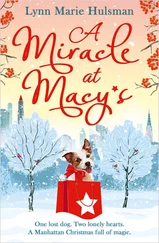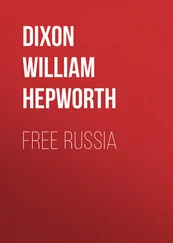Nikolai Nekrasov - Who Can Be Happy and Free in Russia?
Здесь есть возможность читать онлайн «Nikolai Nekrasov - Who Can Be Happy and Free in Russia?» весь текст электронной книги совершенно бесплатно (целиком полную версию без сокращений). В некоторых случаях можно слушать аудио, скачать через торрент в формате fb2 и присутствует краткое содержание. Год выпуска: 2005, Жанр: Поэзия, на английском языке. Описание произведения, (предисловие) а так же отзывы посетителей доступны на портале библиотеки ЛибКат.
- Название:Who Can Be Happy and Free in Russia?
- Автор:
- Жанр:
- Год:2005
- ISBN:нет данных
- Рейтинг книги:3 / 5. Голосов: 1
-
Избранное:Добавить в избранное
- Отзывы:
-
Ваша оценка:
- 60
- 1
- 2
- 3
- 4
- 5
Who Can Be Happy and Free in Russia?: краткое содержание, описание и аннотация
Предлагаем к чтению аннотацию, описание, краткое содержание или предисловие (зависит от того, что написал сам автор книги «Who Can Be Happy and Free in Russia?»). Если вы не нашли необходимую информацию о книге — напишите в комментариях, мы постараемся отыскать её.
Who Can Be Happy and Free in Russia? — читать онлайн бесплатно полную книгу (весь текст) целиком
Ниже представлен текст книги, разбитый по страницам. Система сохранения места последней прочитанной страницы, позволяет с удобством читать онлайн бесплатно книгу «Who Can Be Happy and Free in Russia?», без необходимости каждый раз заново искать на чём Вы остановились. Поставьте закладку, и сможете в любой момент перейти на страницу, на которой закончили чтение.
Интервал:
Закладка:
"I sprang from the stove,
Though my burden was heavy;
I listen…. All silent…. 210
The family sleeping.
I creep to the doorway
And open it softly,
I pass down the street
Through the night…. It is frosty.
In Domina's hut,
Where the youths and young maidens
Assemble at night,
They are singing in chorus
My favourite song: 220
"'The fir tree on the mountain stands,
The little cottage at its foot,
And Máshenka is there.
Her father comes to look for her,
He wakens her and coaxes her:
''Eh, Máshenka, come home,'' he cries,
''Efeémovna, come home!''
"'''I won't come, and I won't listen!
Black the night—no moon in Heaven!
Swift the stream—no bridge, no ferry!
Dark the wood—no guards.'' 231
"'The fir tree on the mountain stands,
The little cottage at its foot,
And Máshenka is there.
Her mother comes to look for her,
She wakens her and coaxes her:
''Now, Máshenka, come home,'' she says,
''Efeémovna, come home!''
"'''I won't come, and I won't listen!
Black the night—no moon in Heaven!
Swift the stream—no bridge, no ferry!
Dark the wood—no guards!'' 242
"'The fir tree on the mountain stands,
The little cottage at its foot,
And Máshenka is there.
Young Peter comes to look for her,
He wakens her, and coaxes her:
''Oh, Máshenka, come home with me!
My little dove, Efeémovna,
Come home, my dear, with me.'' 250
"'''I will come, and I will listen,
Fair the night—the moon in Heaven,
Calm the stream with bridge and ferry,
In the wood strong guards.'''"
CHAPTER VII
THE GOVERNOR'S LADY
"I'm hurrying blindly,
I've run through the village;
Yet strangely the singing
From Domina's cottage
Pursues me and rings
In my ears. My pace slackens,
I rest for awhile,
And look back at the village:
I see the white snowdrift
O'er valley and meadow, 10
The moon in the Heavens,
My self, and my shadow….
"I do not feel frightened;
A flutter of gladness
Awakes in my bosom,
'You brisk winter breezes,
My thanks for your freshness!
I crave for your breath
As the sick man for water.'
My mind has grown clear, 20
To my knees I am falling:
'O Mother of Christ!
I beseech Thee to tell me
Why God is so angry
With me. Holy Mother!
No tiniest bone
In my limbs is unbroken;
No nerve in my body
Uncrushed. I am patient,—
I have not complained. 30
All the strength that God gave me
I've spent on my work;
All the love on my children.
But Thou seest all things,
And Thou art so mighty;
Oh, succour thy slave!'
"I love now to pray
On a night clear and frosty;
To kneel on the earth
'Neath the stars in the winter. 40
Remember, my brothers,
If trouble befall you,
To counsel your women
To pray in that manner;
In no other place
Can one pray so devoutly,
At no other season….
"I prayed and grew stronger;
I bowed my hot head
To the cool snowy napkin, 50
And quickly my fever
Was spent. And when later
I looked at the roadway
I found that I knew it;
I'd passed it before
On the mild summer evenings;
At morning I'd greeted
The sunrise upon it
In haste to be off
To the fair. And I walked now 60
The whole of the night
Without meeting a soul….
But now to the cities
The sledges are starting,
Piled high with the hay
Of the peasants. I watch them,
And pity the horses:
Their lawful provision
Themselves they are dragging
Away from the courtyard; 70
And afterwards they
Will be hungry. I pondered:
The horses that work
Must eat straw, while the idlers
Are fed upon oats.
But when Need comes he hastens
To empty your corn-lofts,
Won't wait to be asked….
"I come within sight
Of the town. On the outskirts 80
The merchants are cheating
And wheedling the peasants,
There's shouting and swearing,
Abusing and coaxing.
"I enter the town
As the bell rings for matins.
I make for the market
Before the cathedral.
I know that the gates
Of the Governor's courtyard 90
Are there. It is dark still,
The square is quite empty;
In front of the courtyard
A sentinel paces:
'Pray tell me, good man,
Does the Governor rise early?'
"'Don't know. Go away.
I'm forbidden to chatter.'
(I give him some farthings.)
'Well, go to the porter; 100
He knows all about it.'
"'Where is he? And what
Is his name, little sentry?'
"'Makhár Fedosséich,
He stands at the entrance.'
I walk to the entrance,
The doors are not opened.
I sit on the doorsteps
And think….
"It grows lighter, 110
A man with a ladder
Is turning the lamps down.
"'Heh, what are you doing?
And how did you enter?'
"I start in confusion,
I see in the doorway
A bald-headed man
In a bed-gown. Then quickly
I come to my senses,
And bowing before him 120
(Makhár Fedosséich),
I give him a rouble.
"'I come in great need
To the Governor, and see him
I must, little Uncle!'
"'You can't see him, woman.
Well, well…. I'll consider….
Return in two hours.'
"I see in the market
A pedestal standing, 130
A peasant upon it,
He's just like Savyéli,
And all made of brass:
It's Susánin's memorial.
While crossing the market
I'm suddenly startled—
A heavy grey drake
From a cook is escaping;
The fellow pursues
With a knife. It is shrieking. 140
My God, what a sound!
To the soul it has pierced me.
('Tis only the knife
That can wring such a shriek.)
The cook has now caught it;
It stretches its neck,
Begins angrily hissing,
As if it would frighten
The cook,—the poor creature!
I run from the market, 150
I'm trembling and thinking,
'The drake will grow calm
'Neath the kiss of the knife!'
"The Governor's dwelling
Again is before me,
With balconies, turrets,
And steps which are covered
With beautiful carpets.
I gaze at the windows
All shaded with curtains. 160
'Now, which is your chamber,'
I think, 'my desired one?
Say, do you sleep sweetly?
Of what are you dreaming?'
Интервал:
Закладка:
Похожие книги на «Who Can Be Happy and Free in Russia?»
Представляем Вашему вниманию похожие книги на «Who Can Be Happy and Free in Russia?» списком для выбора. Мы отобрали схожую по названию и смыслу литературу в надежде предоставить читателям больше вариантов отыскать новые, интересные, ещё непрочитанные произведения.
Обсуждение, отзывы о книге «Who Can Be Happy and Free in Russia?» и просто собственные мнения читателей. Оставьте ваши комментарии, напишите, что Вы думаете о произведении, его смысле или главных героях. Укажите что конкретно понравилось, а что нет, и почему Вы так считаете.











